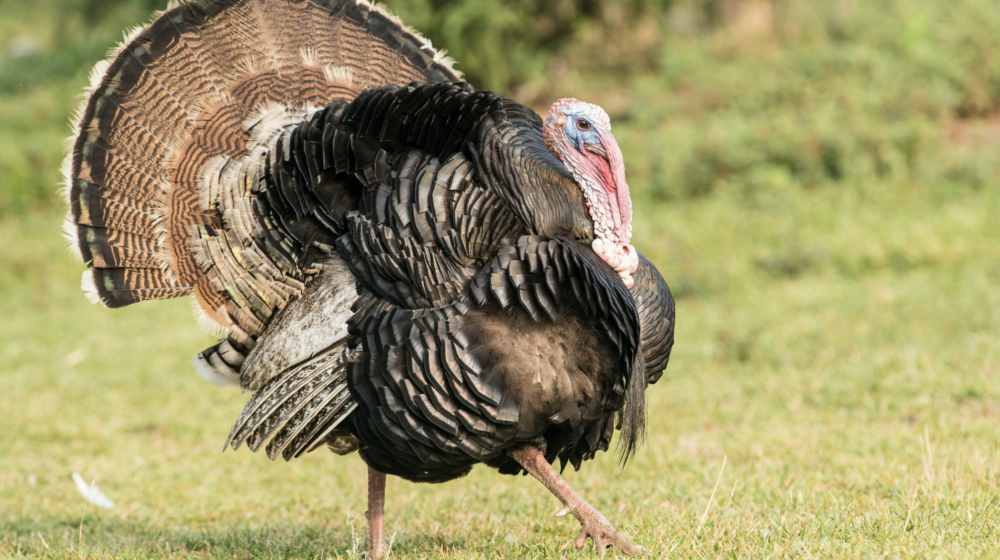Critter of the Month: Eastern Wild Turkey

(Photo by Canva)
Spring is here, and wild turkeys are on the minds of many Mississippians. While there are five species of wild turkeys, Mississippi is home to the Eastern wild turkey, which is the most abundant.
Although the population has declined in recent years, an estimated 250,000 birds live in the state. These turkeys boast brown tips on tail feathers with white and black bars on their wings. On average, a turkey has between 5,000-6,000 feathers on its body! Male turkeys are called toms, while females are called hens. Toms are known for their strong gobbles, long beards, and red, white, and blue heads, while hens generally are dull in color and typically do not gobble.
Turkeys are alert to the slightest movement or sound and will quickly leave an area, as hunters know. A great read for hunters is Extension Publication 3250, “Unlocking the Language of the Wild Turkey,” which discusses research and tips for calling turkeys.
Hunting turkeys can be dangerous due to hunters actively calling to birds and wearing camouflage, so remember to be a safe and alert during the hunt. Always positively identify your target and what is beyond your target before you decide to shoot. Don’t forget to report any turkey you harvest to the Mississippi Department of Wildlife, Fisheries, and Parks.
Wild turkeys can be spotted in just about every county in Mississippi. Many turkeys find themselves at home in areas that have a good mixture of forested and open land for nesting, feeding, and roosting. It’s not uncommon to see them roaming in your neighborhood or along the side of the road. Turkeys travel in flocks, so watch out for their poults (baby turkeys) during April, May, and June.
Turkeys are omnivores, meaning they generally eat nuts, berries, insects, and seeds. If they frequent your backyard, enjoy them but it’s not recommended to provide food for them as this can encourage transmission of some lethal diseases for turkeys. If turkeys become a nuisance making noises, using automatic sprinklers, or putting out decoy predators to help deter them from your yard has shown to be somewhat effective
If you need information about wild turkey management, contact the Mississippi State University wildlife faculty or the Mississippi Department of Wildlife, Fisheries, and Parks.
Another good resource on all things turkey is “Turkey Tuesday” by MSU Alum Dr. Mike Chamberlain on Twitter.
Subscribe to Extension for Real Life
Fill in the information below to receive a weekly update of our blog posts.









